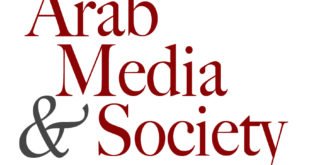In a room not more than two square meters, a small black-and-white television is perched uncertainly on top of a refrigerator, a cable running through the corrugated tin roof. In this small baqala, shelves stacked with tins of milk, dry biscuits, and crates of eggs, six men sit around a large …
Read More »The Re-feudalization of the Public Sphere: Lebanese Television News Coverage and the Lebanese Political Process
(A draft of this paper was presented at the New Media in the Middle East International Conference for Contemporary Middle East Studies at the University of Southern Denmark in November 2005.) The Republic of Lebanon is a curious, small state situated in a politically unstable region. Currently subjected to confused …
Read More »Popular Culture as a Political Barometer: Lebanese-Syrian Relations and Superstar
On the evening of Monday, August 11, 2003, two spontaneous riots erupted in Beirut. They occurred around the same time and were triggered by the same event. About an hour earlier, Future TV had announced voting results after the semi-final of its flagship program, Superstar, the Arabic version of Pop Idol (UK) …
Read More »The Thin Red Lines: Censorship, Controversy, and the Case of the Syrian Soap Opera Behind Bars
Ramadan television in the Arab world is a showcase for “family values” as production companies and advertisers make huge efforts to attract millions of viewers gathered for the post-Iftar time slots. Inevitably, controversies arise. Complaints come from both producers and viewers, either condemning the broadcast of glitzy vaudeville programs starring …
Read More »The Fool Sings a Hero’s Song: Shaaban Abdel Rahim, Egyptian Shaabi, and the Video Clip Phenomenon
“If you would swim on the bosom of the ocean of Truth, you must reduce yourself to a zero.” -- Mahatma Gandhi When twelve cartoons depicting the Prophet Mohammad were published in Denmark’s Jyllands-Posten on September 30, 2005, few foresaw the violent backlash that transpired as a result of their …
Read More »Fatwas and Feminism: Women, Religious Authority, and Islamic TV
Soad Saleh, one of the world’s leading female scholars of Islam, fields requests for religious advice each week from callers across the Arab world. Seated at a gilded table on the set of her Egyptian satellite TV show, Women’s Fatwa, Saleh provides religious rulings on a wide range of subjects. How …
Read More »Tareq Alsuwaidan, General Manager of Al Resalah Channel
A new Islamic television channel Al Resalah (The Message) launched in March 2006 amid a buzz of speculation about whether the station, billed as the first-ever moderate Islamic entertainment channel, would be able to offer a sufficiently appealing product (Islam-friendly comedies, talk shows, reality TV, music videos and game shows) to attract …
Read More »Major Amy Connelly, Former Director, Baghdad Press Center
Within the larger debate over the American-led war in Iraq, the question of the media and its coverage of the war has often been as contentious as the war itself. Major Amy Connelly is the commander of the US Army’s 204th Public Affairs Detachment. From January 2004 until February 2005, Major Connelly …
Read More »Brigadier General Mark T. Kimmitt, Deputy Director for Strategy and Plans, US Central Command
For anyone who has followed the Iraq War on television, Brigadier General Mark T. Kimmitt has to be one of the most recognizable spokespersons for the American military. General Kimmitt, who served in the high-profile position as chief military spokesman for the Coalition Provisional Authority in Baghdad, is now the deputy director …
Read More »Nabil Khatib, Executive Editor of Al Arabiya
The war in Iraq has taken a grisly toll on journalists. Reporters Without Borders has called it the deadliest conflict for journalists since World War II. For Pan-Arab news network Al Arabiya, the violence has hit home, killing at least 11 of its staff in Iraq and severely limiting the …
Read More » Arab Media & Society The Arab Media Hub
Arab Media & Society The Arab Media Hub

